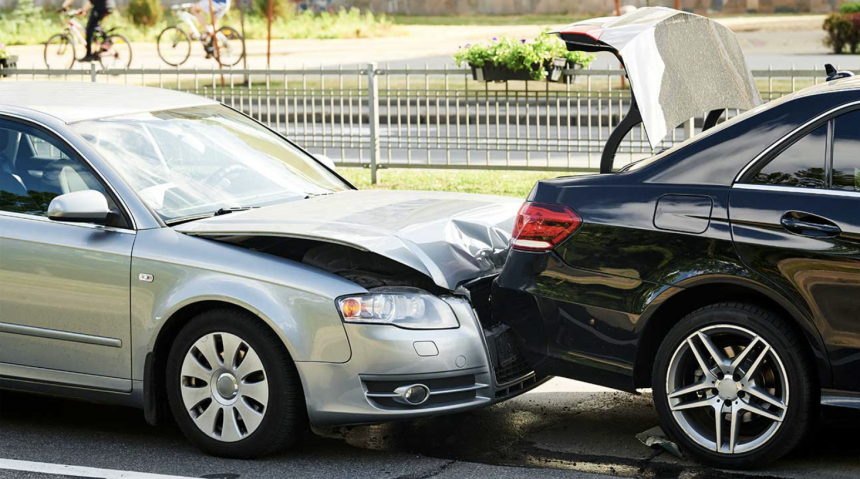Thousands of auto accidents occur in the U.S. alone every day. Many of these leave drivers and passengers seriously injured or even dead. Uber and Lyft drivers are not immune to getting into bad accidents. They too experience crashes on a daily basis, leaving their passengers traumatized at best and fatally wounded at worst.
Says Las Vegas rideshare accident lawyer, Morris Injury Law, it’s an unfortunate reality that Uber and Lyft ridesharing accidents occur all too often. Since the drivers are not employees of their companies, but instead independent contractors, getting the compensation you deserve on behalf of your injuries and damages that resulted from a car crash can be difficult if not impossible.
That’s where a reputable rideshare lawyer comes in very handy. They can review your case and do their best to get you the compensation you deserve while you are recovering from your accident.
But what about those people who drive for Uber and Lyft? All too often the accidents that occur are not their fault. Still, they are in danger of being sued anyway. How can they protect themselves financially from unexpected lawsuits?
A recent report by Market Watch suggests that if you use rideshare services such as Lyft or Uber, it is advisable to obtain rideshare insurance. In case of an accident, your regular car insurance won’t cover the damages, regardless of who is at fault. This may lead to your insurance being cancelled and potentially leave you in a financial crisis.
Fortunately, numerous trusted auto insurance companies provide rideshare insurance policies in almost every state across the U.S. If you are interested in getting a rideshare policy or require one urgently, you can easily search for “rideshare insurance policy near me” on Google.
Defining Rideshare Insurance Coverage
The below list illustrates some key attributes that are generally considered specific to rideshare insurance coverage.
–Rideshare insurance might not be required by law.
–Rideshare insurance is different than the standard commercial auto insurance coverage.
–Rideshare insurance can serve to fill in gaps that exist in standard auto insurance coverage.
–As the name implies, rideshare insurance will address the specific coverage needs of Uber and Lyft drivers.
How Rideshare Insurance Works
Rideshare insurance is a type of commercial insurance that is designed to cover specific gaps in coverage for people who work in the growing rideshare industry.
Rideshare Company Insurance Coverage
Some rideshare companies including Lyft and Uber will provide these insurance coverages for their drivers:
–Bodily injury liability insurance.
–Underinsured or uninsured motorist insurance coverage.
–Property damage insurance coverage.
–Collision insurance coverage.
–Comprehensive insurance coverage.
Is Rideshare Insurance Considered a Requirement?
If you are driving for a rideshare service, you may not be required to buy additional rideshare insurance in some states as long as you have the state-mandated minimum coverage.
It is important to understand that minimum liability coverage does not provide protection while using the rideshare app for work. To ensure safety for both the driver and passengers, rideshare drivers must have commercial insurance.
Says Market Watch, standard commercial insurance policies are typically reserved for larger operations and businesses. These policies are engineered to cover a fleet of vehicles or vehicles that are utilized only for commercial or revenue generating purposes. That said, it might not make sense to go to the trouble of paying for comprehensive commercial rideshare insurance for someone who only drives for Lyft and Uber on occasion.
Some Form of Commercial Auto Insurance is Required
If you want to use your car to earn money, such as through ridesharing, you will need to buy insurance that covers commercial driving. Regular insurance policies may not cover you in case of an accident while you are using your car for business purposes. Therefore, it’s important to get an appropriate insurance policy that meets your needs.
If you use your car, SUV, or truck only for personal reasons, then a regular liability, collision, or comprehensive insurance policy is sufficient. However, if you start driving for Lyft or Uber and accepting payments from passengers using the corresponding app, your personal auto insurance policy will not cover damages in case of a serious accident.
If you do happen to get involved in a serious accident while driving for a rideshare company, the rideshare company’s commercial insurance policy might cover damages to the other driver’s automobile. In theory, that is.
But in accidents where the rideshare driver is clearly at-fault, the driver’s personal insurance provider will likely deny coverage of the cost of damage to your own vehicle, even if you are paying for comprehensive insurance and collision insurance policies.
It’s possible your rideshare company might have its own collision policy design to pay for the repairs to your vehicle, but it likely comes with a high deductible which means you will be paying out of pocket for the repair.
For instance, Lyft and Uber drivers are often provided with comprehensive insurance coverage while “en route” to a ride request that’s just come over their app and while they are transporting the customer or customers. But this variety of coverage comes with a massive $2,500 deductible.
More specifically Uber insurance coverage will not apply while parked. That means, if a tree should happen to fall on your vehicle while you are waiting to pick up your customer, you will be “out of luck,” so to speak. Making matters worse, if you happen to be parked with your Uber app turned on, neither Uber’s insurance coverage or your comprehensive insurance coverage will pay for the necessary repairs.
In a worst-case situation, you might lose your insurance coverage altogether if it’s discovered you are using your car for commercial purposes without having informed your auto insurer.
With the cost of most rideshare insurance running around an additional $30 per month, it certainly pays to buy a policy if you plan on making some serious side gig money in the rideshare industry. By skipping this necessary step, you could find yourself in a world of both physical and financial hurt should you get into a serious accident.
Lynn Martelli is an editor at Readability. She received her MFA in Creative Writing from Antioch University and has worked as an editor for over 10 years. Lynn has edited a wide variety of books, including fiction, non-fiction, memoirs, and more. In her free time, Lynn enjoys reading, writing, and spending time with her family and friends.















